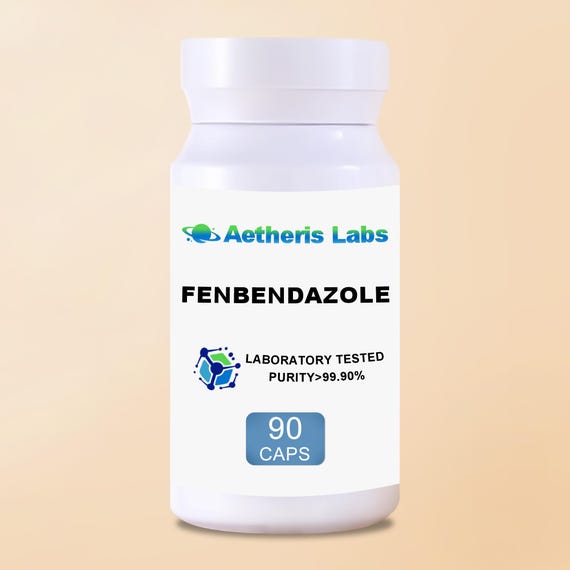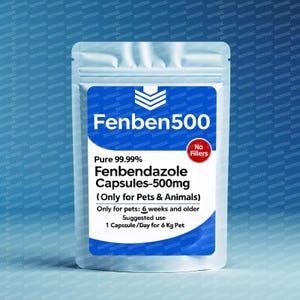fenbendazole 444: How It Helps in Effective Parasite Control
Wiki Article
Checking out the Systems Behind Fenbendazole and Its Impact on Pet Wellness
Fenbendazole is a commonly made use of anthelmintic understood for its performance versus numerous parasites. Its main mechanism entails the restraint of microtubule development, which interferes with crucial procedures in these virus. Beyond its antiparasitic residential properties, fenbendazole also shows up to boost immune actions and possesses anti-inflammatory advantages. Comprehending these diverse effects might reveal brand-new applications for animal health and wellness. Concerns stay concerning its full possibility and security account.The Pharmacokinetics of Fenbendazole
The pharmacokinetics of fenbendazole, an extensively utilized anthelmintic in veterinary medication, includes the study of its absorption, circulation, metabolic process, and excretion within animal systems. After management, fenbendazole is swiftly taken in from the gastrointestinal system, with peak plasma concentrations taking place within hours. Its circulation is affected by elements such as cells binding and lipid solubility, allowing it to permeate numerous cells efficiently. The drug undergoes considerable metabolism mostly in the liver, where it is converted into active and non-active metabolites. These metabolites contribute in the medication's total effectiveness and security account. Discharging happens mainly with feces, with a smaller sized percentage removed via pee. The half-life of fenbendazole differs amongst varieties, which impacts application programs. Understanding these pharmacokinetic buildings is vital for optimizing its healing usage and guaranteeing reliable parasite control in veterinary methods.Mechanisms of Activity Against Parasites
Fenbendazole exerts its antiparasitic results largely with the restraint of microtubule development in parasites. This disturbance impacts their structural integrity and mobile features, resulting in damaged power metabolism. As an outcome, the medicine efficiently jeopardizes the survival and recreation of various parasitical organisms.Inhibition of Microtubule Formation
Inhibition of microtubule development stands for a vital system whereby certain anthelmintic agents, including fenbendazole, apply their results on bloodsuckers. Fenbendazole binds to tubulin, a healthy protein that develops microtubules, interfering with the polymerization process essential for microtubule setting up. This disruption harms necessary mobile functions, including mitosis, intracellular transportation, and architectural honesty. As microtubules play a vital role in maintaining the shape and feature of parasitical cells, their inhibition leads to cell cycle apprehension and ultimate fatality of the bloodsucker. This mechanism is especially reliable versus nematodes, as their dependence on microtubules for wheelchair and nutrient absorption makes them prone to fenbendazole. Consequently, the restraint of microtubule formation is a critical aspect of fenbendazole's therapeutic efficiency in vet medication.Disruption of Energy Metabolism
Disrupting basal metabolism is an additional vital system through which fenbendazole targets parasitical organisms. This anthelmintic alters the energy production paths within bloodsuckers, primarily impacting their ability to generate adenosine triphosphate (ATP) By hindering sugar uptake and disrupting mitochondrial function, fenbendazole limits the power sources important for the survival and recreation of these organisms. Consequently, parasites end up being progressively prone to environmental anxieties and immune actions. Additionally, the interference in basal metabolism not just impacts the bloodsuckers directly however additionally reduces their capability to assimilate nutrients, even more hindering their growth. On the whole, the disruption of energy metabolic process stands for an essential element of fenbendazole's efficacy versus different parasitical infections, contributing greatly to enhanced animal wellness resultsPossible Side Effects and Safety Profile
The potential adverse effects and safety and security profile of fenbendazole warrant cautious consideration, particularly in vet applications. While typically considered as risk-free, some pets might experience unfavorable reactions, including intestinal disturbances such as vomiting and diarrhea. In addition, neurological signs and symptoms, although unusual, have been reported in delicate individuals, highlighting the demand for surveillance throughout treatment.
Fenbendazole's safety and security in numerous types, including pets and pet cats, has actually try this web-site been documented, but dosage and period of treatment should be meticulously taken care of to decrease threats. Expecting or lactating animals may also require special focus, as the results on creating unborn children or nursing offspring are not fully comprehended.
Regular veterinary consultations can help mitigate prospective side impacts and ensure the medicine is carried out properly. Subsequently, while fenbendazole is an effective anthelmintic representative, watchfulness regarding its negative effects is necessary for maintaining animal health and wellness.

Fenbendazole's Impact on Immune Feature
Fenbendazole has been noted for its possible to regulate immune system responses in pets. Its anti-inflammatory properties may contribute to improved immune function, providing a dual advantage in managing health (fenbendazole 222). Understanding these results is crucial for examining fenbendazole's function in veterinary medicineImmune System Inflection

Anti-inflammatory Characteristics
Anti-inflammatory impacts represent a substantial aspect of fenbendazole's impact on immune function. Study shows that fenbendazole may reduce the manufacturing of pro-inflammatory cytokines, which are essential in mediating inflammatory actions. By modulating these cytokines, fenbendazole can possibly minimize inflammation-related problems in animals. This anti-inflammatory action not only help in taking care of signs and symptoms connected with numerous diseases but also boosts total body immune system effectiveness. Additionally, its ability to promote a well balanced immune response assists protect against excessive inflammatory damages, which can lead to persistent health problems. Fenbendazole's role in swelling administration highlights its value in vet medication, supplying a dual benefit of antiparasitic activity and immune system assistance for pet health.Applications Past Standard Parasitical Infections
While largely acknowledged for its efficiency against numerous parasitic infections, fenbendazole has amassed focus for possible applications yet typical scope. Current research studies recommend that fenbendazole might have valuable effects on cellular wellness and immune feedback, making it an intriguing candidate for handling other wellness problems in animals. As an example, its reported anti-inflammatory homes might offer relief for animals dealing with chronic inflammatory diseases. Furthermore, some research indicates that fenbendazole might contribute in sustaining the general health of animals by improving nutrient absorption and gastrointestinal health. Its potential as a complement treatment in cancer therapy has triggered passion, as initial searchings for recommend it may hinder growth cell growth in certain contexts. These diverse applications highlight fenbendazole's flexibility, encouraging more exploration right into its multifaceted advantages for animal health and wellness past its conventional usage as a deworming agent.Future Research Study Instructions and Effects for Animal Health And Wellness
The expedition of fenbendazole's potential applications has opened up new methods for research targeted at boosting pet wellness. Future researches might concentrate on its efficiency against a wider array of microorganisms, consisting of germs and viruses, thereby expanding its duty in vet medication. The ramifications of fenbendazole's systems, such as its influence on immune inflection, warrant even more examination to understand exactly how it can reinforce overall wellness in different species.Additionally, study might discover ideal does and formulas to make best use of efficacy while lessening prospective adverse effects. Checking out fenbendazole's collaborating effects with other medicines can cause a lot more effective therapy procedures. Longitudinal research studies reviewing long-lasting end results in pets treated with fenbendazole could supply beneficial insights into its security and performance. Overall, the ongoing expedition of fenbendazole provides appealing capacity to boost animal health and wellness, requiring a joint approach amongst researchers, veterinarians, and pharmaceutical programmers to facilitate innovations in this area.
Frequently Asked Inquiries
Can Fenbendazole Be Made Use Of in Livestock for Parasite Prevention?
The concern of whether fenbendazole can be made use of in livestock for parasite avoidance matters, as producers look for effective therapies (fenbendazole). Study suggests it might offer benefits, yet proper standards and vet recommendations are vital for risk-free usageWhat Is the Suggested Dose of Fenbendazole for Various Pets?

Exist Any Understood Medicine Communications With Fenbendazole?
Current understanding suggests that fenbendazole may connect with certain medicines, potentially affecting their efficacy or metabolic process. Vet professionals advise consulting with a veterinarian to evaluate specific pet cases and identify any type of feasible communications before administration.How Does Fenbendazole Contrast to Various Other Antiparasitic Medications?
Fenbendazole is often compared this post to various other antiparasitic drugs based upon efficacy, spectrum of activity, and safety profiles. It is preferred for its effectiveness versus a broad range of bloodsuckers while usually exhibiting very little negative effects in animals.Is Fenbendazole Effective Versus Viral or Microbial Infections in Animals?
The efficiency of fenbendazole versus viral or microbial infections in animals remains unverified. Study mostly concentrates on its antiparasitic residential properties, with minimal proof sustaining any function in treating non-parasitic infections in veterinary medication.Report this wiki page